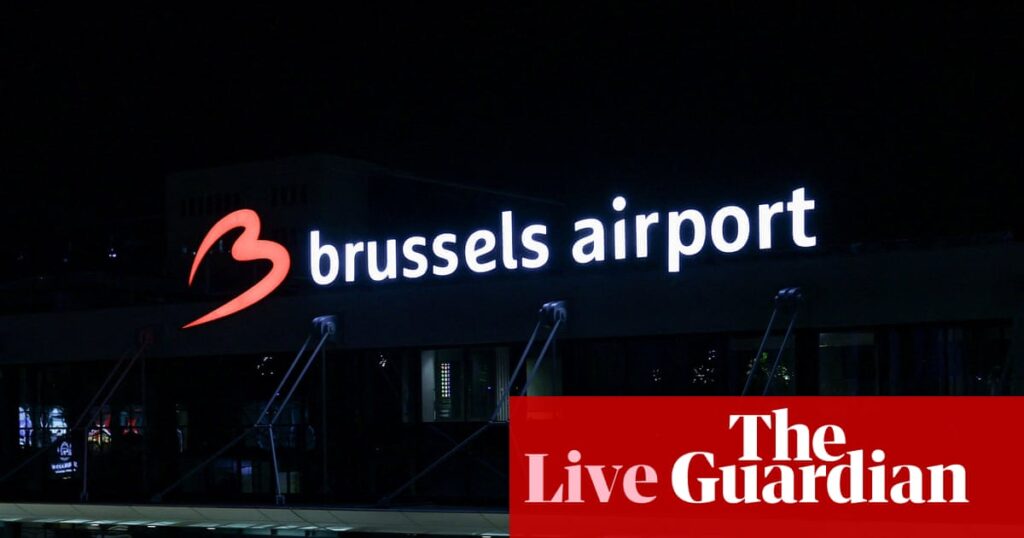Key events
Koolmees picked to ‘scout’ early coalition talks in the Netherlands
Over in the Netherlands, former senior minister Wouter Koolmees of the centrist D66 party has been picked as “the scout” to lead early exploratory talks on forming the next Dutch government.
Koolmees was previously involved in negotiating coalition arrangements in 2017 and 2021, joining Mark Rutte’s governments as social affairs minister and, briefly, deputy prime minister.
In a formal letter with instructions, Rob Jetten, the leader of D66 which won the election last week, told him he wanted “a stable cabinet” with “broad support.”
He also indicated preference for a broad coalition of D66, liberal-conservative VVD, centre-left GL-PvdA, and centrist CDA, which would command 86 seats in the 150-seat parliament.
In the letter, posted on X, Jetten – the likely future prime minister – said that “after a long period of stagnation and instability, [the Dutch people] long for a politics of decisiveness and connection, one that resonates with as many Dutch people as possible.”
Outlining some key priorities of the new government – including housing, education, climate, migration, and economy – he said “it’s up to this generation of politicians to restore the Dutch people’s confidence that politics can truly improve their lives.”
The scout will now get on with talks to see what’s possible, with the VVD expected to be the most difficult party to get on board, as it previously appeared to rule out a coalition with the centre-left GL-PvdA.
But as part of his role, Koolmees will also look beyond the preferable scenario and speak with eight party leaders today, NOS reported. His early report will be submitted to the parliament by 11 November, with a debate on the next steps scheduled for 13 November.
Latvia postpones decision on withdrawing from Istanbul Convention on violence against women
In other news, the Latvian parliament has delayed a decision on withdrawing from the Istanbul Convention opposing violence against women, after pushback from the country’s president and protesters.
In a repeated vote on Wednesday morning, after president Edgars Rinkēvičs sent the original bill back to parliament, the lawmakers agreed to delay a decision on this issue until November 2026.
The parliament had originally voted to withdraw late last month, arguing the treaty introduces a definition of gender that goes beyond biological sex, framing it as a social construct, Reuters said.
The lawmakers also argued that domestic protections in Latvian law were sufficiently tightly drafted, and the withdrawal would not substantially change the legal situation.
But today’s move effectively means that the decision will be made by the next parliament, as Latvia is expected to hold parliamentary election in October 2026, potentially turning the issue into a key election topic.
Prime minister Evika Siliņa welcomed the move, saying it was “a victory of democracy, rule of law, and women’s rights.”
“It is a victory of the Latvian people. Latvia is a reliable partner and ally, and remains committed to European values,” she said.
In yet another drone incident, the local mayor of the city of Diest has just confirmed that four further drones were spotted above the Schaffen military base in the city last night.
Geert Cluckers said in a post on Facebook that “there is no reason to panic, but of course, our security services remain very vigilant.”
Belgian national security council meeting on drones confirmed for Thursday
The Belgian national security council meeting on drone disruptions has now been confirmed for Thursday morning, Nieuwsblad and De Standaard reported.
Morning opening: Drones, again
Jakub Krupa
Brussels airport had to close on Tuesday night after reported drone sightings, disrupting dozens of flights and journeys of thousands of passengers.
It is the latest example of drones affecting civil airports in Europe, amid growing unease about the disruption they cause and potential motives behind their use.
Flights have resumed on Wednesday morning, but some disruption continued, with planes reported out of position as a result of airport closures, Niuewsblad reported. Some 400-500 passengers had to spend the night at the airport because of the sightings.
Separately, drones were also reported in the vicinity of the Kleine-Brogel and Florennes military airbases and a regional airport in Liège.
Belgium’s interior minister, Bernard Quintin, said the country “cannot accept our airports being disrupted by unauthorised drone flights,” calling for “a coordinated and national response.”
The Belgian national security council could meet today or tomorrow to discuss the incident.
But he did not want to jump to conclusions on who could be behind the sightings, saying “it could be Russia or a hobbyist” flying their drones, and leaving it open for the investigation, VRT reported.
Let’s see what updates we get on this incident during the day. The European Commission will no doubt get asked about it at its daily briefing, as will Nato’s secretary general Mark Rutte, who is in Romania today.
It’s Wednesday, 5 November 2025, it’s Jakub Krupa here, and this is Europe Live.
Good morning.

